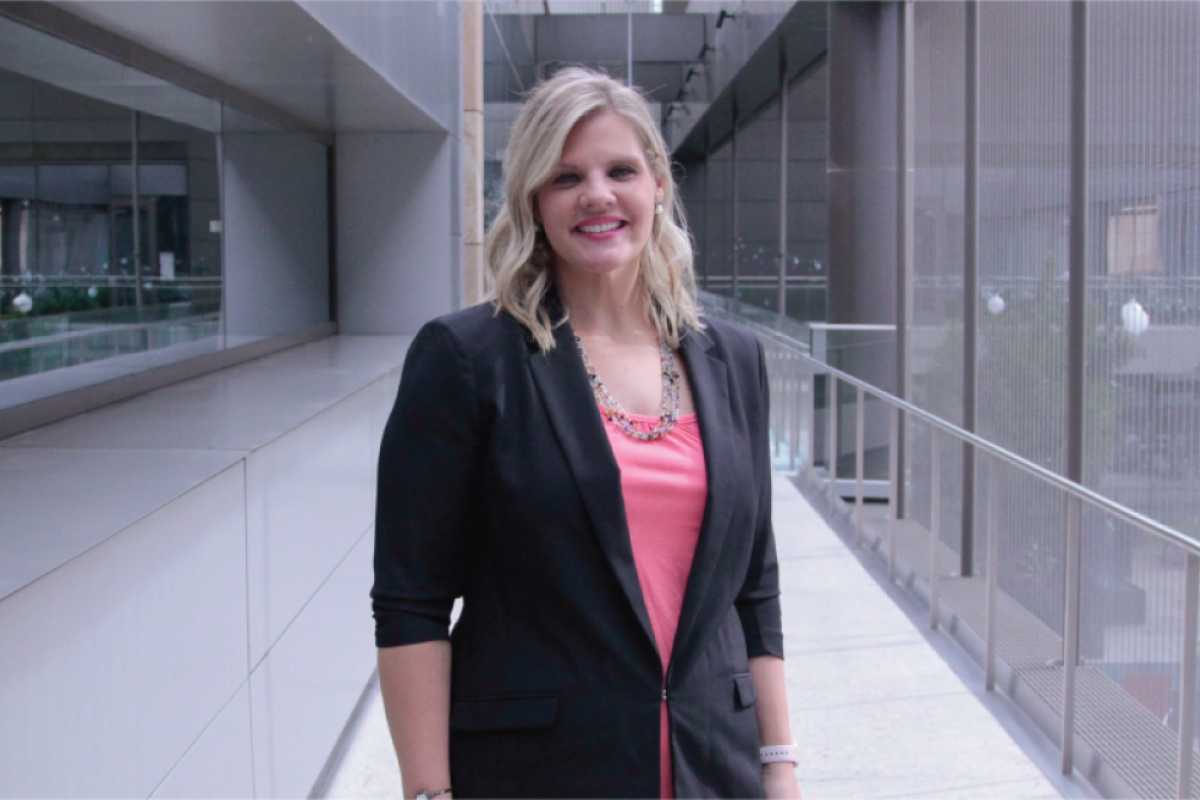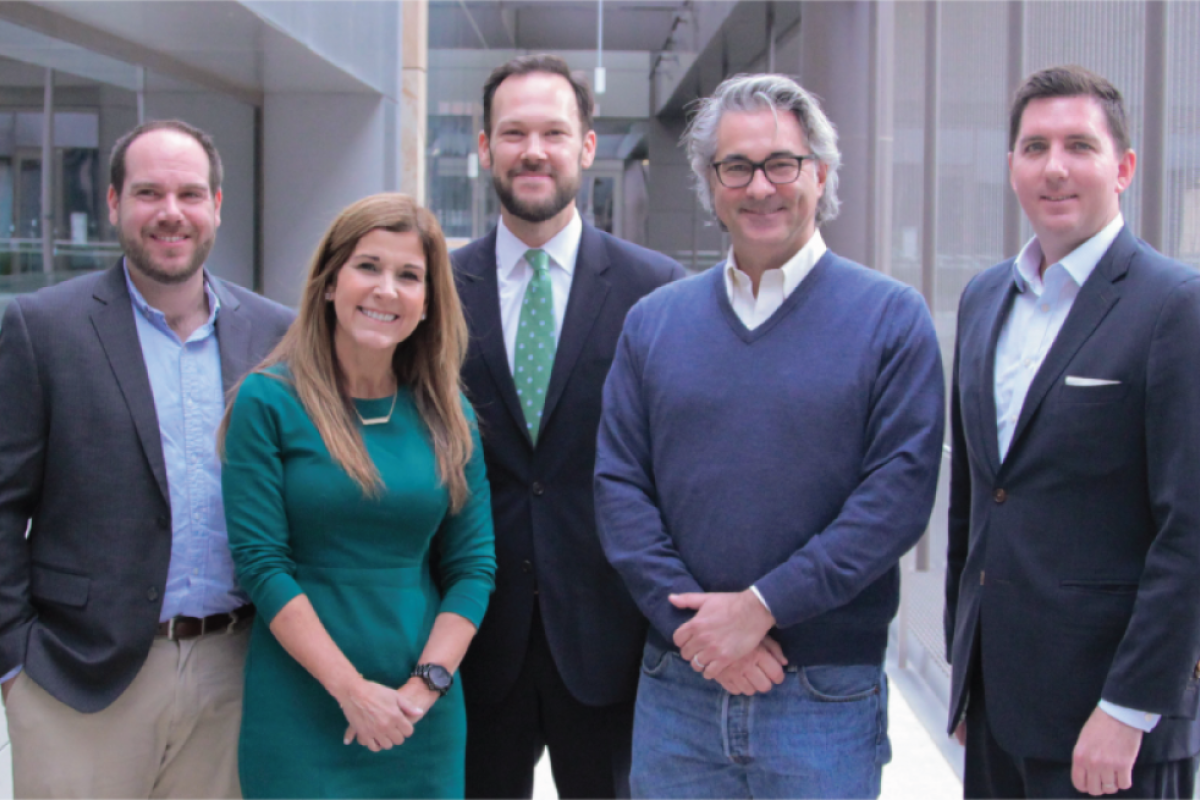ASU’s Schmidt Futures finalists to take ideas on helping middle class to national competition

Team "The Power of FAFSA: Middle Class Wealth Generator and Statewide Economic Engine." Team members include (from left) Edmundo Hidalgo, Rachel Yanof, Julie Sainz and Sylvia Symonds.
Arizona State University announced this week the three finalist teams selected to represent the institution in a national pitch competition in January focused on addressing the needs of the middle class.
The selected finalists will present their proposed solutions to increase the net income by 10 percent of 10,000 local middle-class households by 2020, to a screening panel convened by Schmidt Futures, a venture facility for public benefit founded by Eric and Wendy Schmidt.
“The teams’ solutions respond to pressing needs of Arizona’s middle class,” said Jacqueline Smith, associate vice president of university initiatives at ASU. “Together, they represent some of the greatest burdens on families’ budgets, including housing, transportation and the costs of postsecondary education. Even modest improvements in these areas will have significant implications for the financial health and resiliency of Arizonans.”
A competitive slate of 10 teams was initially chosen to receive $50,000 in seed funding and coaching to develop and refine their ideas. After a local pitch competition, the three final teams were selected by a board of prominent community leaders using a number of criteria, including innovation, value to diverse communities, and partner focus, among others. In the weeks leading up to the national competition, ASU will provide the finalists additional support to enhance their proposals.
ASU President Michael M. Crow praised the teams and their work to benefit Arizona’s middle class.
“This competition is a natural fit for ASU’s charter and design aspirations,” Crow said. “These innovative ideas reflect our commitment to the vibrancy of the local community and leverage the university’s position as an anchor institution.”
ASU’s teams are a result of work that began in April, when Schmidt Futures enlisted four public universities — ASU, the Ohio State University, the University of Utah and the University of Wisconsin-Madison — as the inaugural partners of the Alliance for the American Dream. Each university was awarded funding to develop ideas that promote shared prosperity in their regions over two rounds of competition.
The national competition, bringing the top three teams from each of the four universities, will take place on Jan. 29 in downtown Phoenix.
The finalists are:
The Power of the FAFSA: Middle Class Wealth Generator and Statewide Economic Engine
A coalition including Achieve60AZ, the Arizona Commission for Postsecondary Education, College Success AZ and ASU aims to help at least 10,000 middle-class families in the Phoenix area apply for financial aid to support postsecondary studies. Modeled after digital tools used at ASU, the coalition will launch a new chatbot to address students’ questions about the financial aid process. The coalition will promote the tool and their campaign with awareness events, small group interventions and individualized coaching for parents and students. The average family should expect an annual financial aid award of nearly $10,000.
Intergenerational HomeSharing at Scale
This solution helps older homeowners rent out living space to college students in exchange for 10-20 hours per week of household maintenance tasks that become more challenging with age (e.g. lawn care, cleaning, grocery shopping, pet care) and/or a reduced rental income. By choosing to homeshare, college students can save an estimated $6,000-$10,000 per year in housing costs. Older homeowners can avoid the costs of outsourcing these tasks and also earn additional income, thereby increasing their annual net income by $3,000-6,000 per year.
Autonomous Vehicles for Mobility Access: How Self-Driving Cars Can Reduce Transportation Expenses for Middle-Class Arizonans
ASU and the city of Tempe will collaboratively develop public-private partnerships making use of autonomous shuttles to provide low-cost mobility and transit services for middle-income families in Tempe. This project will target several key population centers in the city to provide quality, cost-efficient mobility where it is currently absent. This is expected to decrease annual transportation expenditures by up to $5,000 per household.
Schmidt Futures is a philanthropic initiative, founded by Eric and Wendy Schmidt, that seeks to improve societal outcomes through the thoughtful development of emerging science and technologies that can benefit humanity. To realize this vision, Schmidt Futures uses a broad set of tools — including gifts, grants, investments, and startup activity — for charitable, educational, and commercial efforts with a public purpose. The Schmidt Futures initiative brings together the efforts of various charitable and non-charitable entities to improve their potential impact by making diverse types of capital available to supported efforts.
Article courtesy of ASU Office of University Initiatives.
More Science and technology

ASU water polo player defends the goal — and our data
Marie Rudasics is the last line of defense.Six players advance across the pool with a single objective in mind: making sure that…

Diagnosing data corruption
You are in your doctor’s office for your annual physical and you notice the change. This year, your doctor no longer has your…
Large-scale study reveals true impact of ASU VR lab on science education
Students at Arizona State University love the Dreamscape Learn virtual reality biology experiences, and the intense engagement it…



